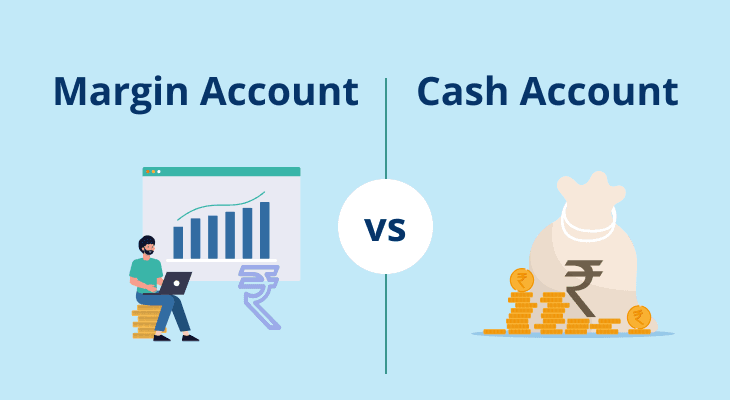
Introduction to Demat account
Dematerialisation or Demat account changed the landscape of share trading in India. Prior to Dematerialisation, shares were physically traded and settled. The entire physical handling of stocks was costly, tedious, and time consuming, with a 14-day settlement cycle. Additionally, physical shares heightened the risk of loss, theft, and duplicity of share certificates. To eliminate these hassles and to accelerate the growth of online share trading, Demat accounts were introduced in the year 1996. Today, Demat accounts are mandatory to trade or invest in the Indian stock markets.
What is Demat account?
A Demat account is an electronic account which stores your financial securities or assets in digital form. A common misconception among investors is that Demat accounts are only for stocks. However, this is not true. You can hold diverse assets like equity shares, preference shares, debentures, bonds, mutual funds, exchange traded funds, insurance policies, and IPO (Initial Public Offering) etc. in a Demat account.
Demat accounts in India are maintained by national depositories -
National Securities Depository Limited (NSDL)
Central Depository Services Limited (CDSL)
While maintained with depositories, you cannot directly open a Demat account with NSDL and CDSL. Investors can open Demat accounts with depository participants i.e., brokers who act as a connecting link between depositories and investors.
How does Demat account work?
Demat account, trading account, and bank account all work in unison to facilitate seamless transactions. For instance, when you buy stocks, you first need to transfer money from your bank account to your trading account. Once the order is successfully executed, stocks are credited to your Demat account whereas funds are debited from your trading account. On the other hand, when you sell stocks, shares are debited from your Demat account and money is credited to your trading account. All this happens in T(Transaction) + 2 working days.
Different types of Demat accounts
Depository participants in India typically provide three types of Demat accounts.
Regular Demat accounts
– Resident Indian citizens with domestic bank accounts can opt for regular Demat accounts.
Repatriable Demat accounts
– This Demat account is specifically for Non Resident Individuals with Repatriable, Non Resident External (NRE) bank account, allowing for easy transfer of funds overseas.
Non-Repatriable Demat accounts
– With a Non Repatriable Demat account, you cannot transfer money overseas. A Non Resident Ordinary bank account is necessary to open a Non Repatriable Demat account.
Features of Demat account
A Demat account is a powerful feature of modern investing, streamlining the process of holding, transferring, and managing your financial assets while ensuring utmost convenience and security. Here are its key features:
Digital Security Storage: A Demat account securely stores shares, bonds, mutual funds, and other securities electronically, reducing the risks of theft, loss, or damage.
Seamless Transfers: Transferring shares is quick and hassle-free. You can easily transfer securities to another Demat account or dematerialise physical certificates.
Portfolio Consolidation: It consolidates your investments in one place, providing a comprehensive view of your portfolio and enabling efficient tracking of your holdings.
Access to Multiple Instruments: Beyond shares, you can hold government bonds, mutual funds, exchange-traded funds (ETFs), and other securities in a single Demat account.
Nomination Facility: You can nominate a person to inherit the account in case of unforeseen circumstances, ensuring smooth succession.
Regular Updates: Most brokers provide real-time updates and detailed transaction records, helping you monitor and manage your investments effectively.
Easy Corporate Actions: Dividends, bonuses, rights issues, and other corporate benefits are automatically credited to your account.
Integration with Trading Account: A Demat account is often linked with a trading account, allowing you to execute buy or sell orders seamlessly.
Benefits of a Demat account
A Demat account simplifies investing, making it indispensable for anyone engaging in financial markets. Here’s why it is beneficial:
Eliminates Paperwork: Holding securities electronically removes the need for cumbersome physical certificates, reducing paperwork and administrative hassles.
Enhanced Security: Demat accounts eliminate risks associated with physical certificates, such as theft, forgery, or misplacement, offering a secure way to manage investments.
Convenience in Transactions: Buying, selling, and transferring securities is quicker and easier, enabling smooth and efficient trading without delays.
Facilitates Portfolio Management: By consolidating all your holdings, a Demat account provides a clear overview of your investments, making it easier to track and manage them.
Seamless Corporate Benefits: Dividends, interest, bonus shares, and rights issues are directly credited to your account, removing the need for manual claims.
Cost Savings: Handling physical certificates often incurs courier, stamp duty, and other logistical costs. With a Demat account, these expenses are significantly reduced.
Access to Diverse Instruments: A Demat account supports a variety of investments, including stocks, mutual funds, bonds, ETFs, and more, making it a versatile tool.
Time Efficiency: Instantaneous transactions and online access save time, allowing you to execute trades and manage your investments effortlessly.
Improved Credibility: Having a Demat account reflects a professional approach to investing, increasing your credibility with brokers and lenders.
In essence, a Demat account is not just a storage medium for securities; it is a gateway to simplified, secure, and efficient investment management, enhancing your overall financial experience.
Documents required for Demat account opening
With the advent of technology, the process of opening a Demat account has become extremely easy and convenient. Here are the documents required to open a Demat account with m.Stock:
Pan Card
Proof of Residency: Aadhaar, driving licence, registered lease agreements, power bills, passports, copies of insurance policies, rent receipts, landline phone bills, gas receipts etc.
Pay slips or tax slips as evidence of income (for activating Futures & Options segment)
Bank account statement or passbook
Signature and photograph
How to open Demat account with m.Stock
Visit www.mstock.com
Click on ‘Open an Account’ button
Enter your mobile number
Enter your KYC details
Verify information like with address proof, ID proof, date of birth and PAN number
Add your bank account
Complete the process with your e-Sign.
Your login credentials will be displayed on the screen. Login and start exploring the app!
Your account will be activated in 4 to 5 working days.
Demat accounts have reduced the costs associated with share trading like transfer fees, courier, and stamp duty charges etc. But investors are still unable to reap their full potential as they end up paying high brokerages in the long term in lieu of zero upfront account opening fees. This is where the m.Stock Demat account shines. You can open a free demat account with m.Stock. So, open a m.Stock Demat account and pay zero brokerage on equity delivery, IPO and mutual funds.
Read Also: What are the Features of Demat Account
Read Also: Eligibility criteria to open a Demat account
FAQ
How to open a demat account?
To open a Demat account, choose a reputed and SEBI-registered Depository Participant (DP) such as m.Stock. Submit identity proof, address proof, PAN card, and a passport-sized photo. Complete the KYC process and sign an agreement. Your Demat account will be activated after verification. Online brokers such as m.Stock have a highly digitised Demat account opening process that saves your time and effort.
What is dematerialisation?
Dematerialisation is the process of converting physical share certificates into electronic form for safer and more efficient handling. By using a Demat account, you eliminate risks like loss, damage, or forgery, while enjoying seamless transactions and better portfolio management. This is a key feature of a Demat account.
Can I have two demat accounts?
Yes, you can open multiple Demat accounts with different Depository Participants, but they must be linked to your PAN. This can allow you to segregate your investments for better management while enjoying the benefits of a Demat account, such as secure storage and easy transfers. However, this may also require you to track your holdings across different platforms making it tedious. Moreover, different brokers may levy different charges adding to your expenses.
What are the charges of a demat account?
Demat account charges vary by provider and can include account opening fees, annual maintenance charges (AMC), and transaction fees. Some providers offer free or low-cost plans. m.Stock, for example, offers the option of zero brokerage across Delivery, Intraday, F&O, Mutual Funds & IPO. Compare options based on features of a Demat account and fees among brokers to make an informed choice.
How long does it take to open a demat account?
Opening a Demat account typically took 3-5 business days. After completing the KYC process and submitting documents, the verification process is initiated. However, due to the online Demat account opening process, your application can be submitted within just a few minutes. Once approved, you can access the features and benefits of a Demat account, such as secure digital storage and efficient transactions.


